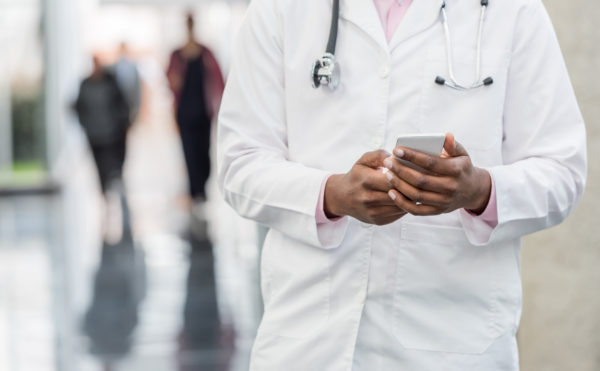Doctors are running out of time to help patients due to the lack of facilities and resources. At the Kiruddu General Hospital, technicians spend hours looking through slides of blood samples to help people. They each have to examine the samples close to 100 times to get an accurate diagnosis. It’s not fair that doctors have to spend more time examining blood rather than spending time with patients. Thanks to technology, things are looking to change.
The artificial intelligence lab at Makerere University, the first in Uganda, has developed a more modern way to diagnose blood samples. All you need is a cell phone. That’s right, an app.
The app creates its own criteria based on images that have been presented previously. It learns to recognize common features in infections, such as malaria, which is known to disproportionately affect residents in the African region. Here’s how the app works. Using a microscope eyepiece, the smartphone highlights a detailed image of the given blood sample, with each malaria parasite circled in red by the software. Called Nakaya, it makes sure the computer is correct, pointing to the tell-tale dot and comma shape of the malaria parasite. “We have so many patients who may require malaria and TB tests, and we have one technician looking at all these slides,” doctor Alfred Andama said. “Apart from affecting their eyes, this also compromises their ability to report correctly what they see.”
RELATED: Diary Of A Black Traveler: How A Trip To Uganda Changed The Course Of Jordan’s Life
This new technology will take a load off of doctors and technicians. Doctors will be able to diagnose patients more quickly, cheaply and accurately. In Uganda, malaria is the leading cause of death since 2016, causing 27 percent of deaths. It’s even worse in rural areas where there is a lack of doctors and nurses. Nursing assistants are taught to read slides, but inadequate training can lead to misdiagnosis. Some worry that this new technology will take jobs away, but that’s not the idea.
Rose Nakasi is a Ph.D. researcher and the lead scientist behind this technology. The project is especially close to her because she has been affected by this deadly disease. “Almost everyone in Uganda, including me, has had malaria,” Nakasi said. “You have cases where someone goes to the hospital and is diagnosed negative, but after a few days they come back and there is malaria.” The only place this new technology can be found is in small Kampala hospitals, Uganda’s capital city, with a larger rollout not yet scheduled.
The biggest challenge will be getting patients to believe it will work, but it is possible. “People know a phone for calling and sending messages, they don’t know that a phone could do your diagnosis,” researcher Daniel Mutembesahe says. If they can offer the smartphone to patients for half the price of a regular diagnosis, Mutembesahe hopes that’s how the concept will be adopted faster.
